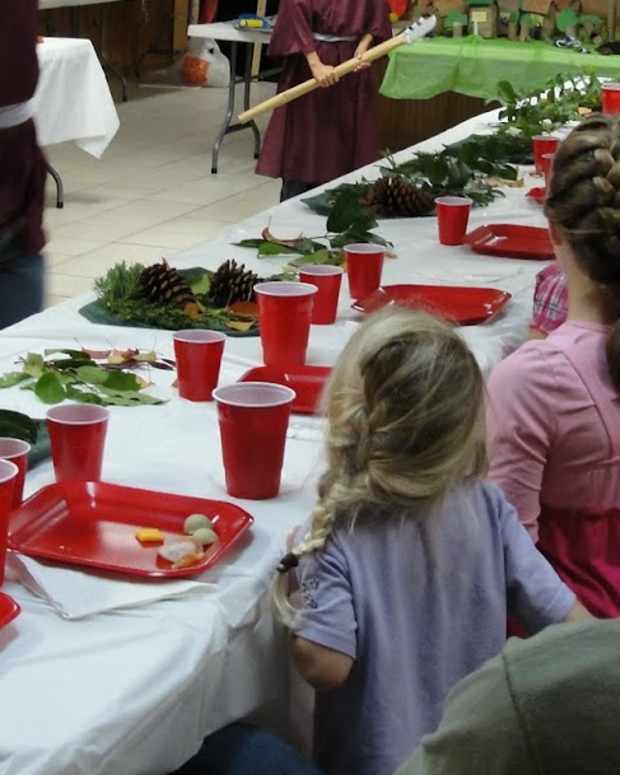Once a Man, Twice a Child -The Second Childhood
Love Makes the World Go Round
The Second Childhood
The well-known adage “once a man, twice a child" is perhaps taken lightly while we are still enjoying youth and good health. Nonetheless, the second childhood is a reality that must be faced eventually by the majority of humankind. It is a dreaded part of the human existence and those who escape it might count themselves Blessed.
The second childhood is sometimes painless, simply a transition. I know a happy senior in this season who is being cared for lovingly by her only daughter. She has no aches, no pain; she’s contented and at peace. Her only condition is old age – she is 101 years old. This shows that the difficulty of the second childhood experience can be alleviated by dedicated care and support from loving family members and friends. More often though, the second childhood is characterized by illness especially noncommunicable diseases such as hypertension and diabetes, and mental illnesses associated with cognitive decline. The experience can be dehumanizing and really painful when, in that second childhood season, we find ourselves in the hands of selfish, uncaring offspring or unsympathetic institutional care givers.
Here are Six common Aspects of the Second Childhood
- Decline in cognitive function – Dementia is the accepted medical term for cognitive loss. It affects memory, behavior and even language and may also cause confusion and disorientation. Dementia patients commonly fail to recognize their own family members. Similarly, Alzheimer’s disease affects memory, language and cognition and is a common cause of dementia. These conditions are not specific to ageing but are definitely more prevalent among the elderly.
- Decline in physical health – Many physical disorders common to ageing confine the elderly to bed and rob them of their independence and sometimes their dignity. Some common illnesses that fall into this bracket include stroke which may cause paralysis and loss of speech, arthritis and chronic body pain which limit mobility, heart disease which hinders breathing hence also limiting mobility, and diabetes which may cause vascular problems resulting in amputation of the legs. These illnesses often place the elderly in situations of almost total dependency on caregivers for basic things like going to the bathroom, getting a bath, and even having a meal. Happy are the people in this season of life who get to remain at home and are tended by devoted sons and/or daughters. Woe to those who find themselves at the mercy of caregivers who may or may not be the best fit for them.
- Loss of vision – This is often age related and is associated with conditions such as cataracts, glaucoma and macular degeneration. Blindness in senior years is an immense blow to one’s pride. Imagine having to be led by the hand by your children and to be restricted in terms of the things you can do when you know of better times when you were totally independent. My father stopped going out completely when he was afflicted with poor vision as a result of glaucoma. His pride would not allow him to show the entire public that he was losing his independence.
- Hearing Loss – Age related hearing loss is called presbycusis; it comes gradually with ageing. It interferes with the elderly’s ability to hold meaningful conversations and can be a cause of serious miscommunication. It can be quite a source of annoyance for both the elder and the caregiver.
- Loss of joy – This often comes about as a result of the reversal of roles and loss of control. The elderly feel as though they are being forcibly shifted out of the power/authority positions which they once held to one where they are being told what to do, how to do it and when to do it by younger persons.
- Fretfulness and impatience – Older people who find themselves in the second childhood stage tend to become fretful or develop a low level of tolerance for what they perceive to be behavior issues in the people around them. Already frustrated at having lost their independence and control and sometimes even their dignity, they may become snappy towards the very people who are trying to be kind to them and resentful towards those who are treating them unkindly.
Some Factors That Make the Second Childhood Season More Bearable
- A good attitude – Believe it or not, older people who take ageing and illness with a positive attitude are likely to live longer and die happier for the simple reason that they are grateful to the persons who are caring for them, those who provide for them and even those who visit them. Further, they have learned to be thankful to God for every single day. I know one such person who, whenever I visited her, was counting her Blessings and constantly repeating the scripture “In everything, give thanks” (Thessalonians 5:18). She always wore a smile and looked contented and at peace. She made visiting easy. She has since passed on and I can hear her saying, as she departed, “I give thanks to God.” Conversely, I visited an older woman who was paralyzed on the left side and left speechless following a stroke. Formerly, a kind and cheerful person, she had become disgruntled and cheerless and wore a defeated expression all day long. There was no smile, no peace on her, only pent-up anger and self-pity. I also remember my own mother who, in spite of the loving care which my siblings and I tried our best to give her every day, seemed to have lost all her joy and her will to live.
- Mutual Respect – All systems work better where there is cooperation and mutual respect between the parties involved. Offspring should remember that their parents, even though they have become dependent, are still adults and should be treated as such. In fact, they should be treated with respect, patience and love during this season. Paid caregivers should also recognize that they should treat their clients with respect and not do anything that would rob them of their dignity. Of course, it takes two hands to clap; offspring and caregivers’ tasks are made easier when they too are given respect by parents/clients. Expressions of gratitude and appreciation from the elderly also go a long way in making the caregiving experience more pleasurable.
- Caring family and friends – This is an absolute Blessing for the elderly person as well as the caregiver! I speak from personal experience. I consider myself privileged to have had the opportunity to take care of my parents during that stage of their lives. It gave me immense gratification to see them smile and to receive their Blessings; to know that they were comfortable in part, because of me. I have also visited many sick and elderly people who were contented in their circumstances because of the loving care they were receiving from dedicated sons, daughters, siblings, relatives or friends. I put in friends here because friends do contribute, sometimes even more than blood relatives. I remember, in the case of my father, I took up duties at his bedside when I got home from work at about 5.00 pm and was relieved at 11.30 pm by his elderly male friend who, after working in his mountain garden all day, was happy to sit with my father (who was like an elder brother to him) until the early hours of the morning. All this time no one knew that he was also ill. Two months after my father died, he was diagnosed with some form of cancer and died soon after. He was buried beside his friend, my father.
- Accessibility of good medical care – This goes hand in hand with loving family support and good bedside care because medical conditions have to be treated with appropriate medical procedures and medications. Often, in developing countries like mine, the second childhood is spent in levels of discomfort which are a direct result of the unavailability or inaccessibility of appropriate diagnostic testing, procedures, treatment and medications.
All Things Considered ...
The second childhood, when accepted with grace, when experienced within an atmosphere of love, and with access to good medical care, can be a tolerable experience for the individual. On the flip side of the coin, a poor attitude, absence of kind caregiving and inaccessibility of appropriate medical care in this difficult season can rob an individual of their dignity and cause the experience to be hell on earth.
Articles on Ageing and the Elderly
- Improving the Treatment of Older Persons in Society
Attitudes towards older persons have, in recent times, shown notable improvement. This is largely due to the growing consciousness of the rights of older persons in society. - Ageing - The Process
Ageing can be dignifying and gratifying if you have lived a fulfilling life and are prepared for the ageing process. However, it can be earth shattering when it catches you unprepared.
© 2024 Joyette Helen Fabien



















